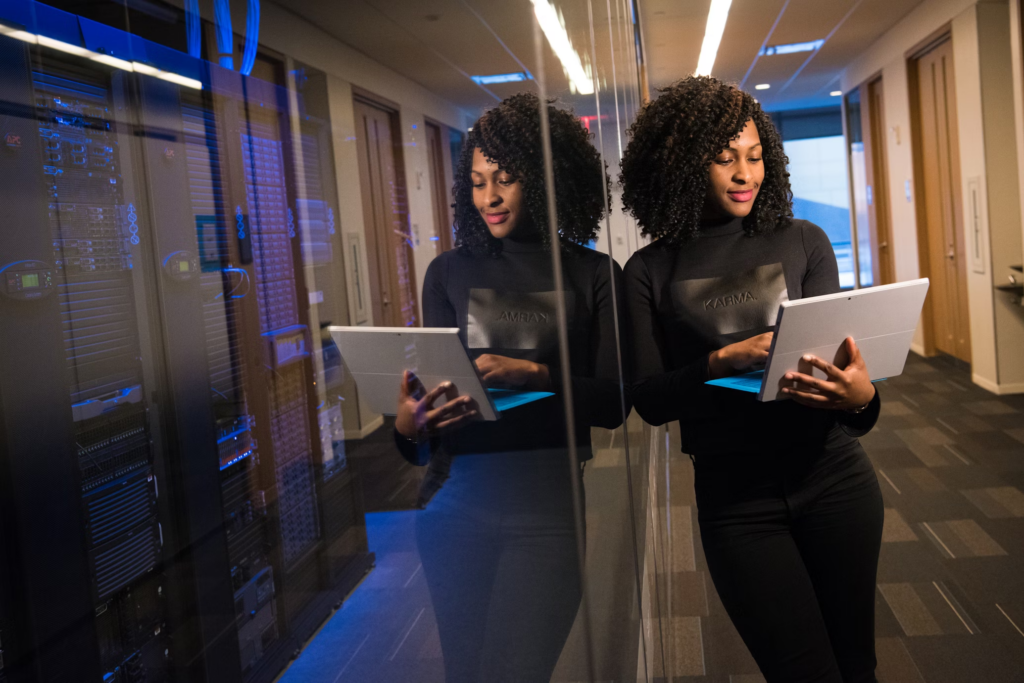In today’s world of work, the role of women in the workplace has reached unprecedented levels of influence, innovation, and leadership. But there is still a long way to go.
For this reason, every 8th March since 1975, International Women’s Day is commemorated, with the aim of making visible the struggle of women to achieve equal rights, and to echo the actions to be carried out to achieve it.
Each year, a slogan is chosen on International Women’s Day to guide the actions to be carried out while at the same time focusing on the problems that continue to affect women all over the world.
Inspiring Inclusion on International Women’s Day
This year’s theme, Inspiring Inclusion, seeks to “celebrate diversity and empowerment on International Women’s Day 2024 and beyond”. This is one of the key aspects in which women face discrimination in the workplace. Although many companies implement DEIB policies, it is important to ingrain them in the corporate culture and train employees to understand the importance of women’s inclusion in the workplace.
Moreover, this is also applied to those women seeking leadership opportunities in the workplace. Women remain underrepresented in the workplace, but especially in leadership roles. According to Lean In’s 2023 report, Women represent roughly 1 in 4 C-suite leaders, and women of color just 1 in 16. It is vital that organisations implement proactive DEIB strategies, mentoring programmes and policies that foster women’s inclusion in the workplace, ultimately creating a work environment where all people, regardless of gender or background, can thrive and contribute to their full potential.
This slogan also puts into perspective and highlights other popular slogans, such as the demand for equal pay, equal employment, and equal presence in relevant political and business positions.

Diversity, Equity, Inclusion and Belonging
DEIB (Diversity, Equity, Inclusion and Belonging), an extension of Diversity, Equity and Inclusion (DEI) approach in the workplace, is becoming a growing trend. While both aim to make the workforce a healthier place, DEIB includes a new aspect that significantly impacts women’s mental health at work. It’s not just about ticking DEI boxes but creating a sense of place and belonging for women. This can be done through a number of initiatives:
1. Work-life balance arrangements
A good way to foster work-life balance is by implementing flexible work arrangements. This can be done by introducing flexible working hours, remote or hybrid work formats. This way, women can work around their personal life and not have to ‘choose’ between work and life.
2. Leadership training
Companies can train women to create a supportive and stigma-free environment where female employees have the same opportunities as men. This can be done by designing a career path and different objectives so they can reach their goals and full potential.
3. Inclusive policies and employee awareness
In order to implement DEIB policies, it is key to train employees and create awareness of inequality at work. Companies can do this by running workshops on women’s rights as well as have these in place from the minute an employee joins the company.
Although this should be carried out all year round, some companies do not offer this type of training. International Women’s Day can be a day to start to include such policies and ongoing training for employees.
4. Mental well-being solutions
Companies should have experts who can advise HR Managers but also provide one to one help for employees. This can be done by implementing a mental well-being solution that helps prevent mental health issues from arising in the first place.
Moreover, this can also include intervention for those who are suffering from poor mental well-being. Expert psychologists can help create company awareness through different tools and, if needed, through one-to-one therapy. ’
Join the global leading solution in mental well-being
How inequality at work is reflected
When talking about gender inequality in the workplace, some terms stand out that, although popular, still represent the main obstacles for women in many work environments.
Firstly, there is inequality with regard to economic conditions, as well as a prevalence of precarious contracts, resulting in what is known as the gender pay gap. On the other hand, there is a disparity in training opportunities, which results in an obstacle to professional development and, consequently, the promotion of women in the workplace.
Two other phenomena are also evident: the “glass ceiling” and the “glass cliff”. These phenomena undermine the possibilities of many women to improve their working conditions and advance in their careers due to the structural dysfunctions of the system.
The “glass ceiling” refers to the invisible but existing ceiling that many women encounter when it comes to promotion or advancement within their jobs, while the “glass cliff” refers to cases where women are allowed to break through the glass ceiling and gain access to positions of power, but only in situations where companies are going through severe crises. As a result, there is a likelihood that they will not be able to cope with the situation, and the belief that “women should not be trusted with such responsibilities” is confirmed.

Unfortunately, these work dynamics increase the figures related to female unemployment, which consistently exceeds male unemployment, with the consequent social, family, economic and, of course, psychological implications of such a phenomenon.
In fact, the limitation of career advancement opportunities for women does not go unnoticed or without effect. This can be seen in the problems of work-life balance, which affect women significantly more than their male partners, as well as frustration and high levels of psychological stress.
Not to mention other more serious problems, such as discrimination for wanting to be mothers, or sexual harassment at work, among others. If you want to know more about them, don’t miss the analysis we carried out on this subject in our article 12 examples of sexism in the workplace that may ring a bell.
All this underlines the need to intervene at various levels to correct this situation that negatively affects women’s quality of life and considerably harms companies.

The UN’s theme for 2024: Invest in Women
This year’s theme, “Invest in Womens: Accelerating Equality”, aims to highlight one of the main barriers to achieving gender equality: the lack of funding for measures to achieve equality.
Investing in policies that advance gender equality is an imperative. However, according to recent estimates, 75% of countries will maintain cuts in public investment by 2025, due to conflict and rising prices. For this reason, it is crucial to highlight the importance of financing policies that promote equal rights.
Companies taking action on International Women’s Day
Inclusivity and the fight for women’s rights within the business world not only benefits women, but also drives the growth and prosperity of the entire organisation. Gender diversity in decision-making leads to greater creativity, more effective problem-solving, and a more inclusive work culture.
For this reason, over the years, different measures have begun to be implemented, such as adequate maternity leave or the law on menstrual leave in Spain, which seek to make visible and address the needs of women, which for so long have been ignored.
However, there are still pending issues. This International Women’s Day, therefore, it is essential to increase the conversation about the actions to be implemented and to direct economic efforts to generate strategies to create more diverse, fair, and equal workspaces.
International Women’s Day and promoting mental well-being in organisations
At ifeel, we believe every day should be International Women’s Day. Companies play a key role in emphasising the importance of equality and inclusivity in the workplace. Not only will this lead to a healthier and more productive workforce, it will also affect the company’s results positively and retain top talent.
To support companies in this process, our team of expert workplace well-being psychologists has created a mental well-being solution for businesses that improves talent retention, reduces presenteeism, and combats employee stress.
With our mental well-being solution, your company’s HR managers can receive personalised, data-driven advice on improving mental health at work. In addition, this solution offers employees a 360° mental well-being service structured at different levels according to their needs. Try our solution now to see how it could help you.
There more! Check out our interview with ifeel’s Head of HR, Beatriz Julián Almarcegui, who discusses the latest trends in HR and well-being and the challenges faced as an HR Manager.
We hope you found this post about International Women’s Day interesting. If you would like more information about our mental well-being solution for companies, simply request it and we will get in touch with your team as soon as possible.








